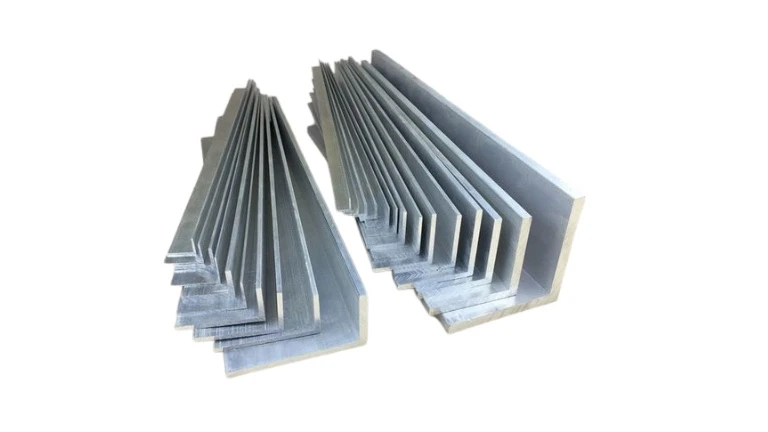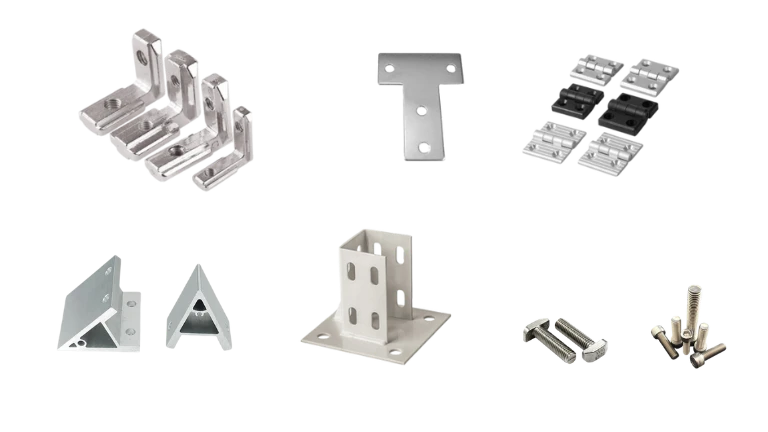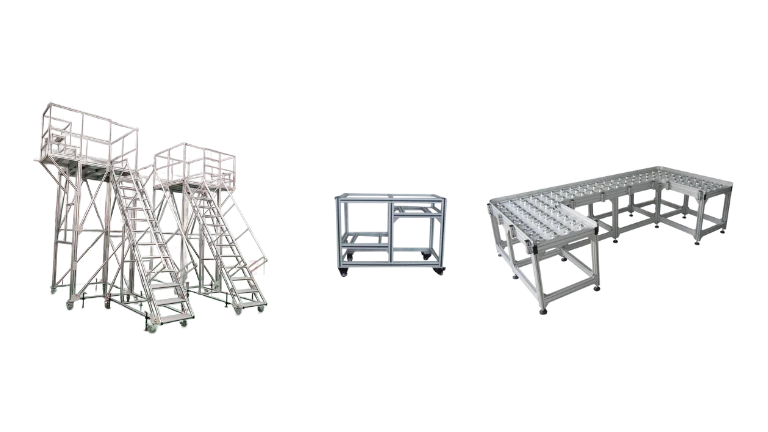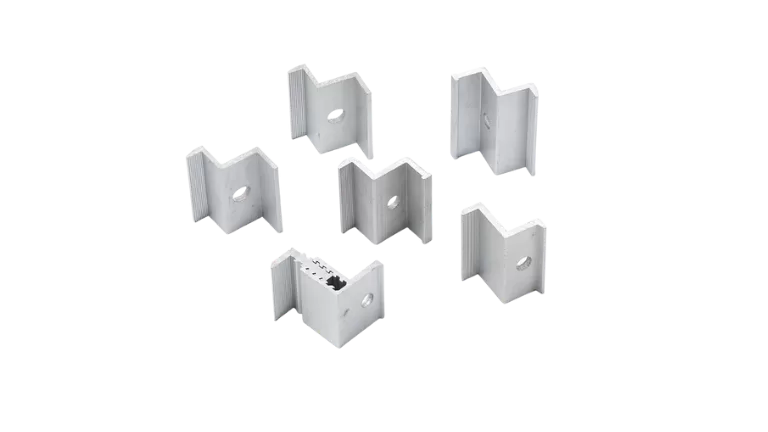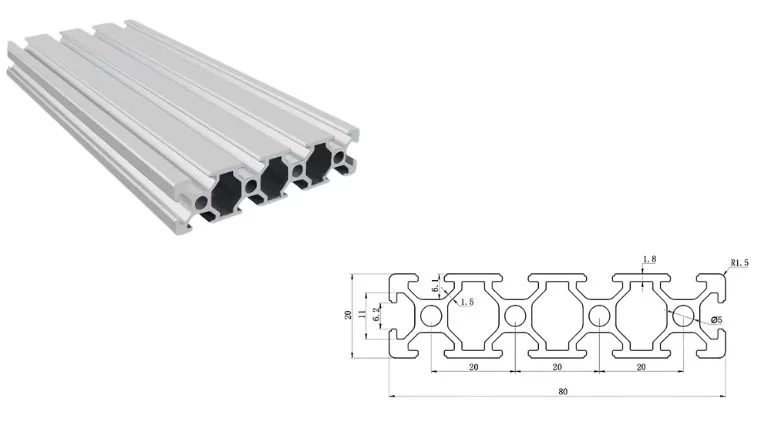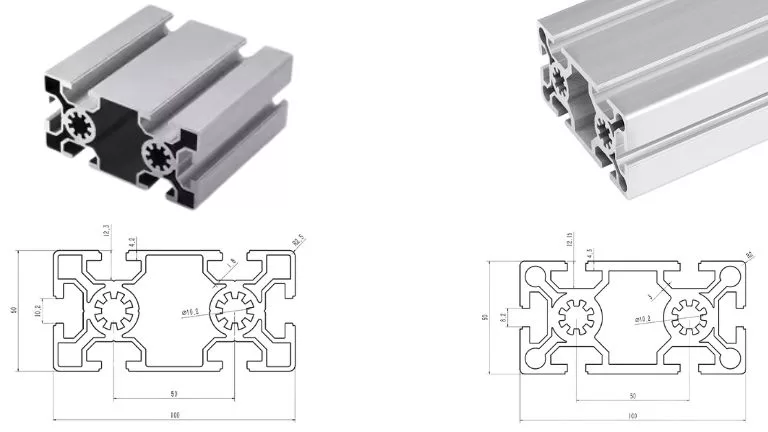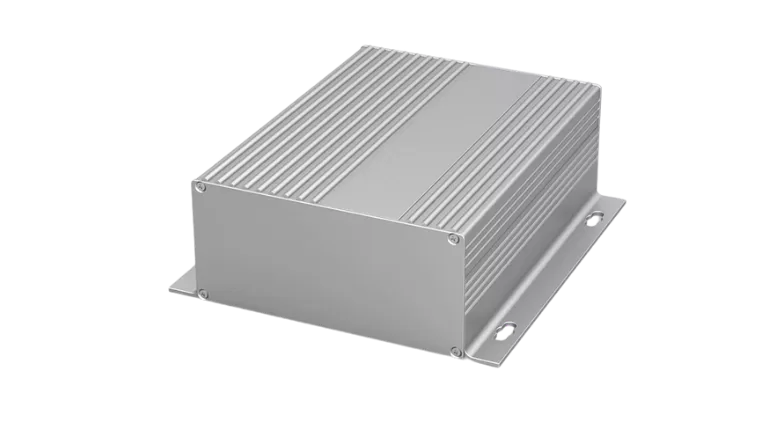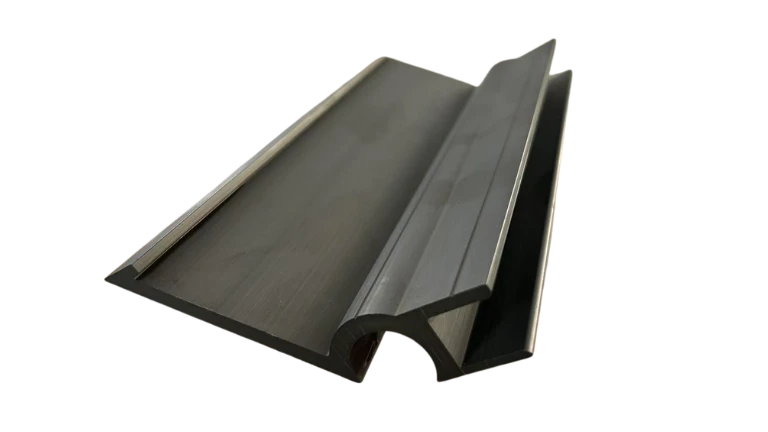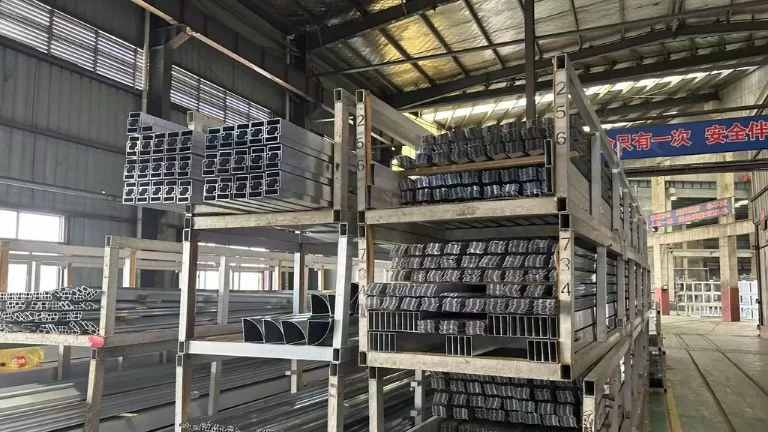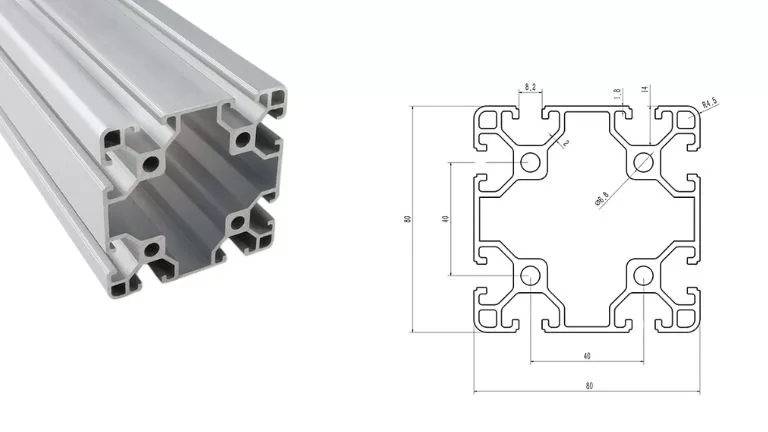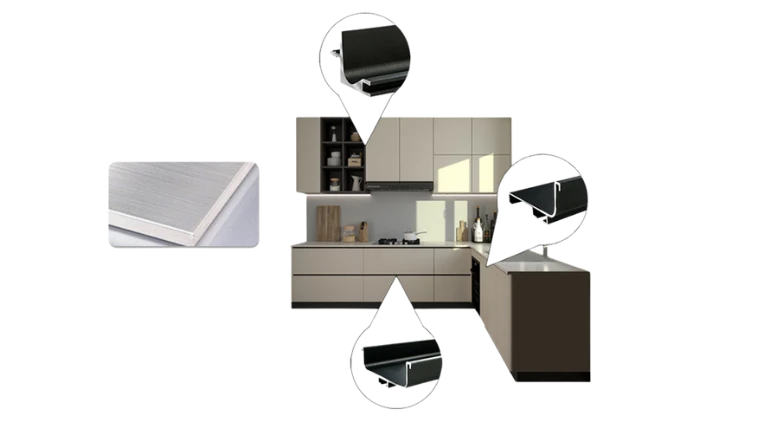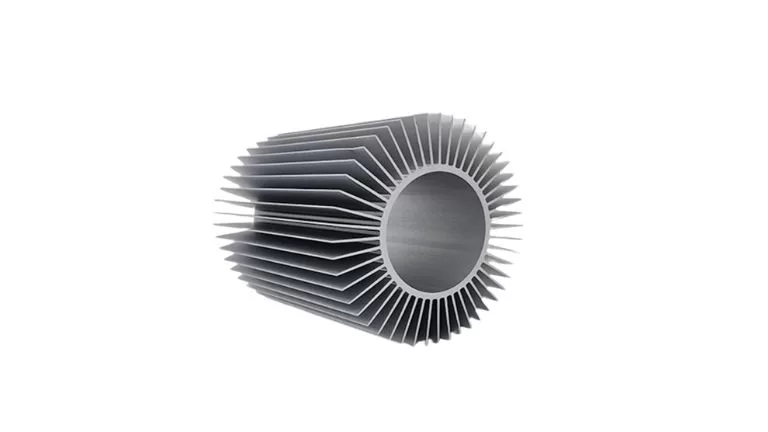Extruded 7075 Aluminum Extrusion Profiles
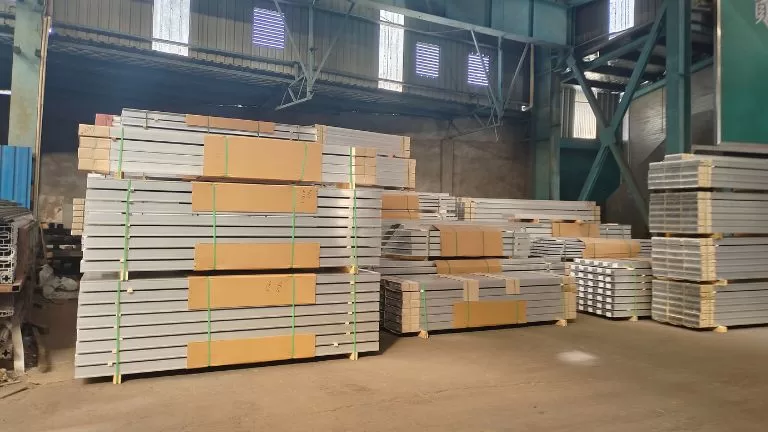
7075 aluminum extrusion is a high-strength, lightweight aluminum profile made by forcing 7075 aluminum alloy through a die to create specific shapes like tubes, bars, channels, and custom designs. Known for its exceptional strength-to-weight ratio, it offers tensile strength comparable to steel while maintaining the lightweight benefits of aluminum. It is widely used in aerospace, automotive, military, and industrial applications, where durability and performance under high stress are critical.
HTS-ALU, we produce standard aluminum extrusions, including bars, tubes, piles, and channels, while also delivering custom aluminum extrusions with advanced production techniques and precision machining to meet your specific needs.
Features of 7075 Aluminum Extrusions
7075 aluminum alloy, primarily composed of aluminum and strengthened by zinc (5.1 – 6.1%), with small amounts of magnesium, copper, and chromium. Zinc provides high strength, magnesium and copper add hardness and machinability, while chromium improves corrosion resistance. This alloy is one of the strongest aluminum options, often compared to steel for tensile strength but much lighter.
Extremely High Strength: 7075 aluminum offers exceptional tensile strength and hardness, making it a standard material in the aerospace industry.
Heat Resistance: It maintains mechanical stability and performance in high-temperature conditions.
Great Machinability: 7075 aluminum provides excellent machinability, especially after heat treatment or quenching, making it easy to manufacture precise and high-quality components.
Weldability: Although its weldability is relatively poor compared to other aluminum alloys, advanced welding techniques, such as friction welding, can effectively address this limitation.
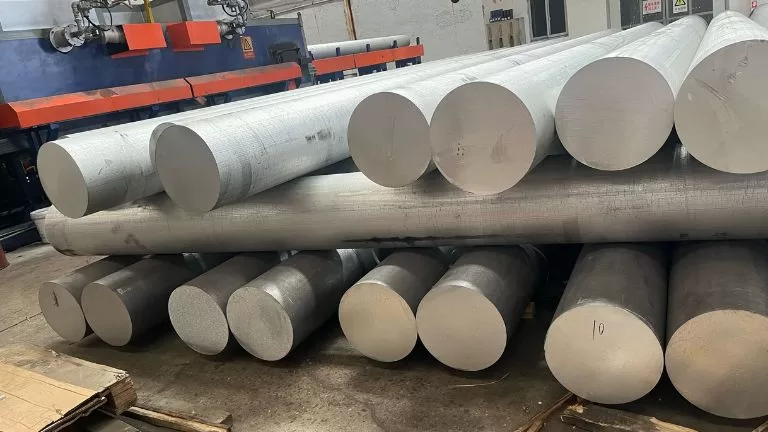
Heat Treatments for 7075 Aluminum Extrusions
T6 Temper:
7075 aluminum undergoes solution heat treatment, quenching, and artificial aging. This process maximizes strength, hardness, and mechanical stability, making it ideal for aerospace and structural applications.
T651 Temper:
The material undergoes the same process as T6 but includes stress relief via stretching to reduce residual stresses and improve dimensional stability during machining.
T73 Temper:
This process involves solution heat treatment, quenching, and over-aging. It provides slightly lower strength than T6 but significantly enhances corrosion resistance, making it suitable for environments exposed to moisture or marine influences.
T76 Temper:
Similar to T73 but optimized for a balance of strength and corrosion resistance, making it a versatile choice in demanding industries.
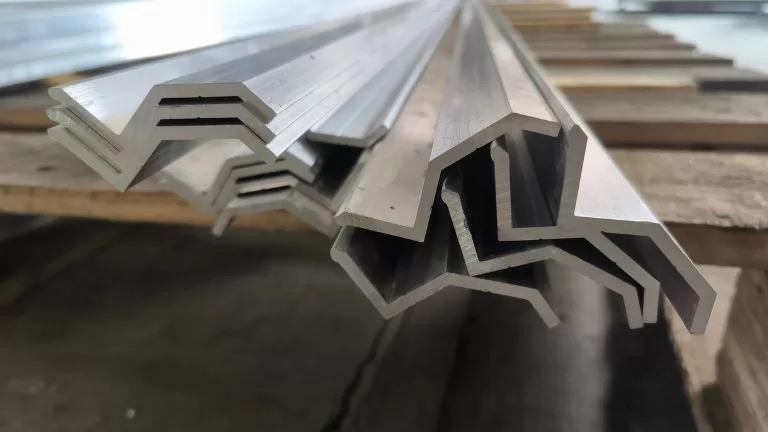
Tailored Aluminum Profile Solutions
HTS-ALU, based in Eastern China, focuses on offering end-to-end aluminum profile manufacturing. We excel in custom mold design, precision extrusion, advanced machining, and high-quality surface finishing.
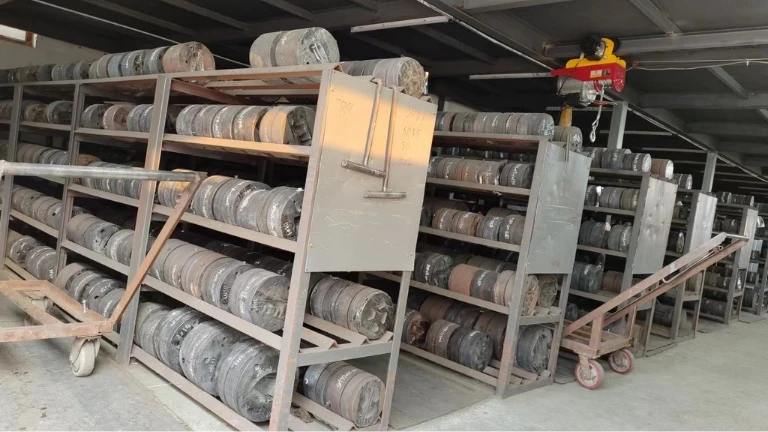 We possess the expertise to design and produce extrusion molds in-house, ensuring precision and efficiency in aluminum profile manufacturing. Our experienced team works closely with clients to develop custom molds based on drawings or samples, ensuring optimal performance for their specific requirements. Typically, the mold production process takes about 7 days, after which we provide samples for client confirmation before beginning full-scale production.
We possess the expertise to design and produce extrusion molds in-house, ensuring precision and efficiency in aluminum profile manufacturing. Our experienced team works closely with clients to develop custom molds based on drawings or samples, ensuring optimal performance for their specific requirements. Typically, the mold production process takes about 7 days, after which we provide samples for client confirmation before beginning full-scale production.
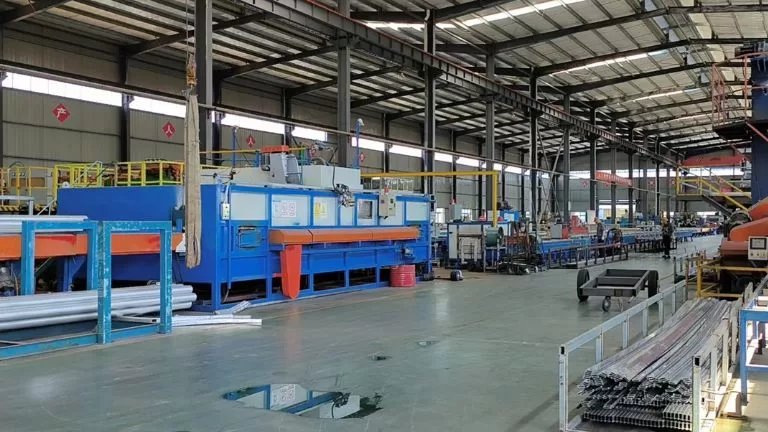 Our production facility houses over 40 advanced extrusion lines, featuring cutting-edge equipment such as a powerful 6000-ton extrusion press. This enables the creation of aluminum profiles in various sizes and forms, ranging from standard industrial applications to specialized products like thermal break profiles for high-end doors and windows. The flexibility of our extrusion capability ensures we can cater to a broad spectrum of industries, including construction and precision engineering.
Our production facility houses over 40 advanced extrusion lines, featuring cutting-edge equipment such as a powerful 6000-ton extrusion press. This enables the creation of aluminum profiles in various sizes and forms, ranging from standard industrial applications to specialized products like thermal break profiles for high-end doors and windows. The flexibility of our extrusion capability ensures we can cater to a broad spectrum of industries, including construction and precision engineering.
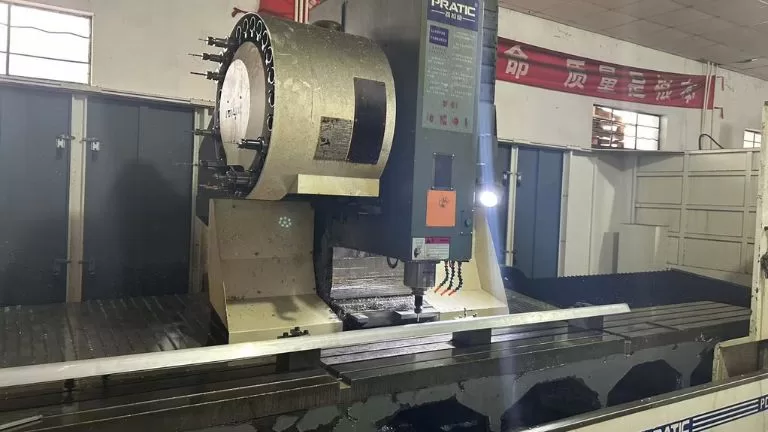
To provide complete aluminum profile solutions, we offer extensive further processing capabilities. Our services include CNC machining, milling, threading, drilling, precision cutting, punching, welding, and assembly. This range of fabrication options allows us to deliver ready-to-use profiles tailored to exact project specifications, offering unmatched flexibility and reliability to our customers.
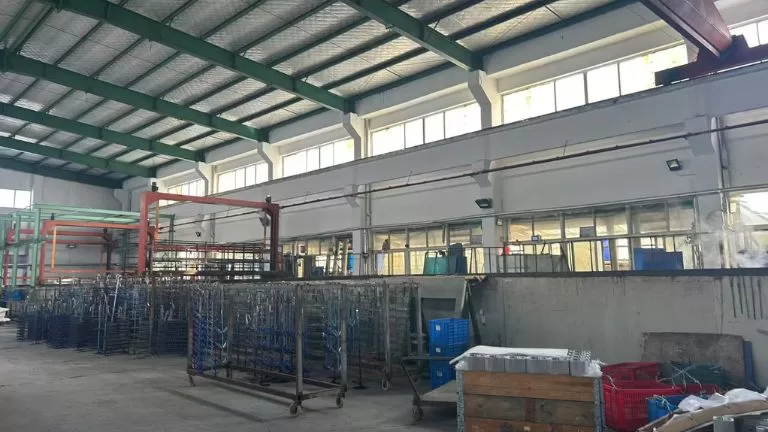
For superior durability and visual appeal, we offer various surface treatment solutions. These include anodizing for added corrosion resistance, powder coating for vibrant finishes, fluorocarbon coating for enhanced weather resistance, and wood grain transfer technology for elegant, natural-looking designs. These treatments are customizable to fit specific aesthetic and functional needs, ensuring that profiles not only perform well but also look exceptional.
Extruded 7075 Aluminum Bar
7075 aluminum bar is known for its excellent strength-to-weight ratio and high mechanical performance. It is commonly used in aerospace, automotive, and industrial applications where maximum strength and rigidity are required. The bar can be heat-treated to tempers like T6 and T651 to enhance its properties.
Extruded 7075 Aluminum Tube | Pipe
Extruded 7075 aluminum tubes or pipes offer exceptional strength and corrosion resistance, particularly after surface treatment like anodizing. Lightweight yet durable, they are widely used in aerospace, military, and structural applications where high pressure and load-bearing capabilities are needed.
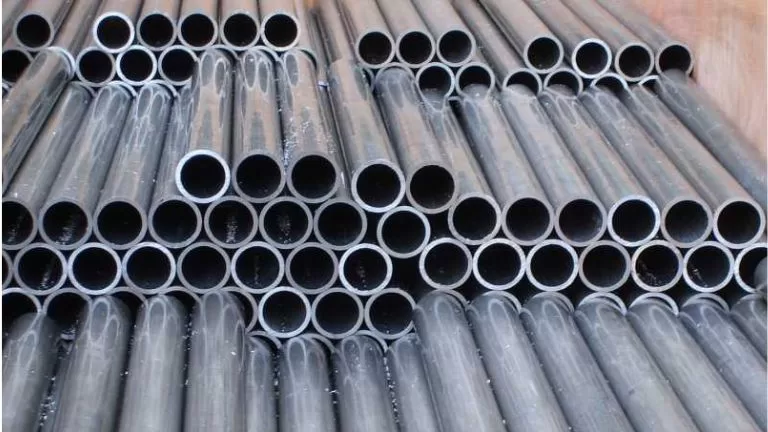
Extruded 7075 Aluminum Channel
7075 aluminum channels provide unmatched strength and reliability for structural frameworks and support systems. With excellent machinability and dimensional stability, they are popular in industries like construction, aerospace, and heavy machinery where high-performance materials are essential.
Extruded 7075 Aluminum Angle
Aluminum angles made from 7075 alloy deliver superior strength and rigidity in lightweight designs. They are ideal for creating strong corners and reinforcements in various industrial and structural projects.
Our Factory
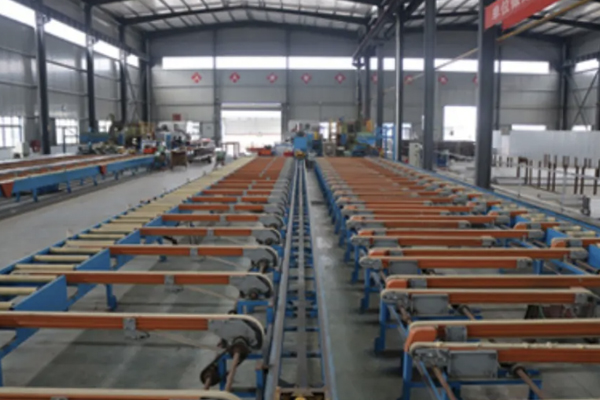
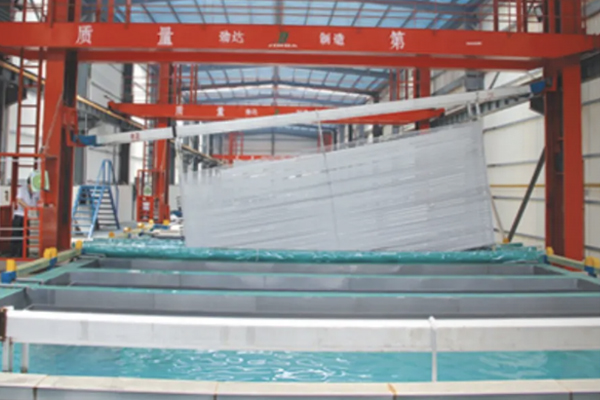
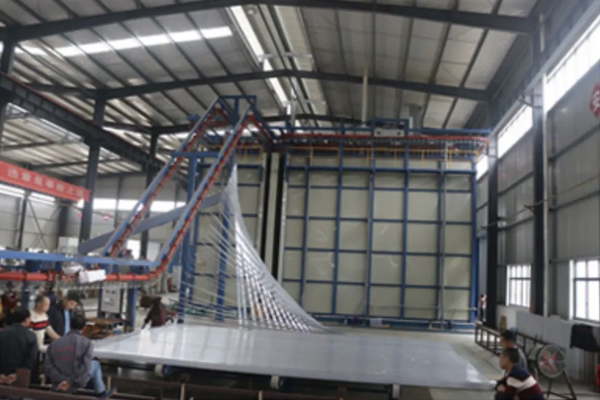
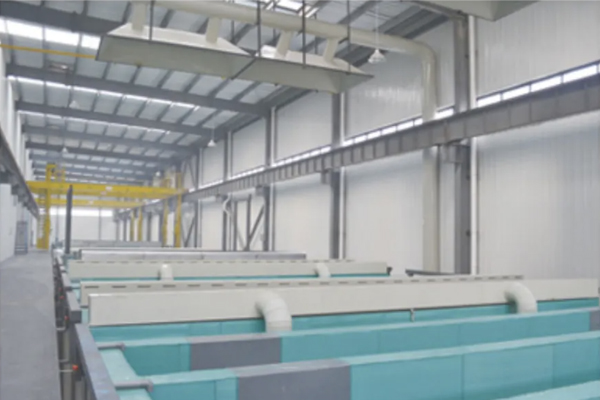
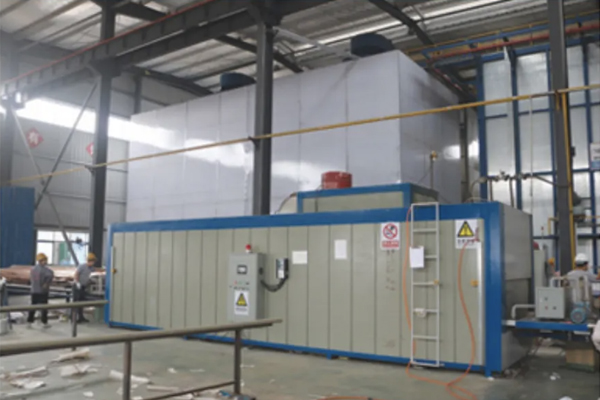
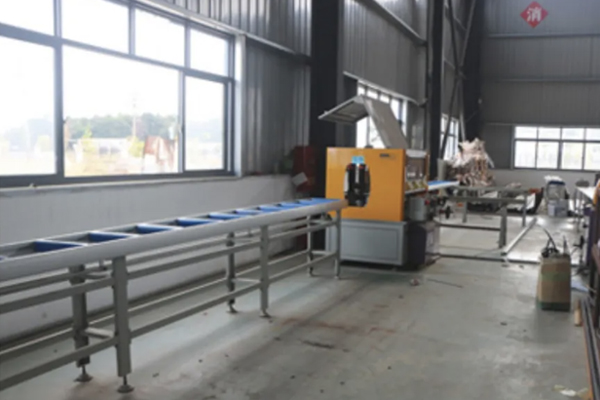
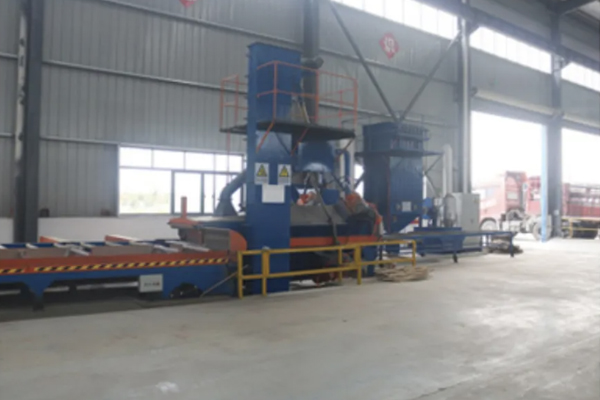
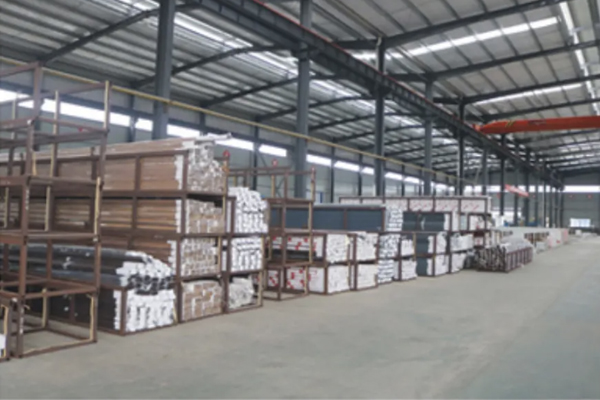
Custom Aluminum Extrusion from Us
At HTS-ALU, we specialize in providing custom aluminum extrusions tailored to your specific requirements. With state-of-the-art production facilities and over 40 advanced extrusion lines, we deliver precision-engineered profiles with exceptional quality for industries such as aerospace, automotive, construction, marine, and beyond.
- Tailored Cross-Sections: Create unique aluminum profiles with our expert die-making capabilities.
- Diverse Surface Finishes: Improve appearance, corrosion resistance, and durability with options like anodizing, powder coating, polishing, and more.
- Precision Machining: Ensure exact dimensions with cutting, drilling, milling, and machining services.
- Flexible Tempers: Choose from various heat treatments to achieve the desired mechanical properties for your application.
At HTS NEW MATERIALS, we’re dedicated to delivering innovative, cost-effective, and reliable custom aluminum extrusion solutions to meet your needs.
RFQ of Extruded 7075 Aluminum Profile
| Alloy | Primary Characteristics | Applications | Corrosion Resistance | Strength | Formability | Weldability |
|---|---|---|---|---|---|---|
| 7075 | Exceptional strength, excellent fatigue resistance, lightweight, but lower corrosion resistance. | Aerospace, military equipment, high-performance automotive parts. | Moderate | Very High | Low | Poor |
| 6060 | Excellent corrosion resistance, moderate strength, good surface finish, and highly extrudable. | Architectural applications, piping, frames, furniture. | High | Moderate | Very High | Excellent |
| 6061 | Balanced properties, good corrosion resistance, high strength, and excellent machinability. | Structural applications, automotive, aerospace, heavy machinery components, marine. | High | High | Moderate | Good |
| 5052 | Outstanding corrosion resistance, especially in marine environments, and excellent weldability. | Marine equipment, storage tanks, pressure vessels, and food processing. | Very High | Moderate | High | Excellent |
Summary:
- 7075 focuses on ultra-high strength but sacrifices corrosion resistance and weldability, making it ideal for strength-demanding applications.
- 6060 excels in corrosion resistance and aesthetics, making it the top choice for architectural and decorative uses.
- 6061 strikes a balance between strength, corrosion resistance, and machinability, making it one of the most versatile alloys.
- 5052 stands out in marine environments with excellent corrosion resistance and weldability, suitable for long-term exposure to harsh conditions.
Aluminum extrusions undergo various surface treatments to enhance aesthetics, corrosion resistance, and functionality. Here are the common surface treatment methods used in the industry:
Main Surface Treatment Methods
Anodizing (Oxidation)
- Process: A controlled electrochemical process that forms a protective oxide layer on the aluminum surface.
- Features:
- Provides a durable, corrosion-resistant, and environmentally friendly finish.
- Produces a metallic finish with a variety of natural tones (e.g., silver, black, bronze).
- Improves surface hardness and protects against scratching.
- Applications: Architectural frames, decorative profiles, heat sinks.
Electrophoresis Coating (E-Coating)
- Process: After anodizing, the aluminum is coated with paint using an electrochemical process.
- Features:
- Enhances corrosion resistance and offers a smooth, glossy finish.
- Provides more color and texture variation compared to anodizing alone.
- Applications: Furniture profiles, indoor architectural components.
Powder Coating
- Process: Electrostatic application of powder paint, followed by curing under high temperature to form a solid coating.
- Features:
- Wide variety of colors and textures.
- Excellent weather resistance and corrosion protection.
- Cost-effective and highly versatile.
- Applications: Outdoor frames, fences, railings, general industrial use.
PVDF Coating (Polyvinylidene Fluoride)
- Process: A specialized fluoropolymer coating is applied in multiple layers, commonly over a pretreated surface.
- Features:
- Exceptional weather resistance and UV stability.
- Highly durable, resistant to fading, chalking, and chemical damage.
- Ideal for long-term outdoor use.
- Applications: Curtain walls, high-performance architectural facades.
Wood Grain Transfer Printing
- Process: A heat-transfer printing process that applies a wood grain effect onto a pre-coated aluminum surface.
- Features:
- Mimics the appearance of wood while retaining aluminum’s durability.
- Lightweight and weather-resistant alternative to natural wood.
- Applications: Furniture, decorative coverings, outdoor panels.
Film Lamination
- Process: Adhesive application of a protective or decorative film onto the aluminum surface.
- Features:
- Provides a glossy, textured, or patterned finish.
- Often used for applications requiring specific textures like marble or leather effects.
- Applications: Interior decor, windows.
Pre-Treatment Processes
Prior to surface treatment, the aluminum surface can be pre-processed for specific textures or finishes:
Brushing/Polishing
- Removes surface imperfections and creates a smooth, reflective finish.
- Often used for decorative purposes.
Sanding/Grinding
- Produces a matte or satin finish by applying abrasives.
Shot Blasting/Sandblasting
- Sprays abrasives at high velocity to create a textured surface, often used before anodizing for a uniform appearance.
Stretching and Tension Leveling
- Straightens the aluminum profile and improves shape accuracy after extrusion.
Cost and Durability Comparison Table
| Treatment Method | Process Cost | Surface Durability | Weather Resistance | Applications |
|---|---|---|---|---|
| Anodizing (Oxidation) | Medium | Very Durable | High | Architectural frames, industrial parts. |
| Electrophoresis (E-Coating) | Medium-High | Durable | Medium | Furniture, indoor parts, decorative uses. |
| Powder Coating | Medium | Highly Durable | High | Outdoor frames, industrial fixtures. |
| PVDF Coating | High | Extremely Durable | Excellent | Curtain walls, high-end exteriors. |
| Wood Grain Printing | Medium | Moderate (topcoat dependent) | Medium | Decorative panels, furniture. |
| Film Lamination | Low-Medium | Moderate | Low | Indoor decorations, windows. |
| Brushing/Sandblasting (Pre-Treatment) | Low | Not Applicable (Preparation only) | N/A | Preparation for further treatment. |
. Anodizing (Oxidation)
- Common Colors:
Natural silver
Black
Champagne
Light bronze
Dark bronze
Gold
2. Electrophoresis Coating (E-Coating)
- Common Colors:
Black
Champagne
Light bronze
Dark bronze
Custom metallic colors
3. Powder Coating
- Colors:
Can match any color based on the RAL color chart.
Offers textures like matte, gloss, satin, and custom finishes.
4. PVDF Coating (Polyvinylidene Fluoride)
- Colors:
Also customizable using the RAL color chart.
High-end finishes with matte or glossy effects.
5. Wood Grain Transfer Printing
- Colors and Patterns:
Mimics various wood types (e.g., oak, walnut, teak, mahogany).
Custom patterns available based on provided samples.
6. Film Lamination
- Colors and Patterns:
Includes textures like marble, leather, and solid colors.
Custom finishes and patterns based on provided samples.
Pre-Treatment Options (Impact on Final Color)
- Brushing/Polishing: Produces smooth or reflective metallic surfaces.
- Sandblasting: Adds a rough, matte texture before the final surface treatment.
We provide a wide range of machining services for aluminum extrusions to meet specific requirements. These include cutting off/section removal, slotting, drilling holes, tapping threads, bending, and localized stamping to create deformations. For example, we can trim extruded profiles to custom lengths, mill precise grooves, create threaded holes for fasteners, bend profiles into specific shapes, or apply localized stamping to achieve custom forms or deformation.
In addition to these processes, we also offer TIG/MIG welding to join aluminum components for a solid structure. Furthermore, our services include assembly of common accessories, such as brackets, corner connectors, screws, hinges, end caps, and rubber seals, providing complete and ready-to-install profile solutions tailored to your project needs. This ensures that we can handle everything from simple cuts to highly customized fabrication and assembly, all with precision and efficiency.
For custom aluminum extrusion projects, we accept a variety of drawing formats, including CAD files, STEP files, and PDF files. However, for extrusions that require additional machining processes, it’s recommended to provide STEP files, as they ensure precise 3D modeling for machining accuracy.
While PDF files are acceptable, converting them into CAD drawings may result in the loss of certain details, requiring us to manually redraw the design, which could increase lead time. For the fastest and most accurate quotation, we recommend providing CAD files (e.g., DWG/DXF) and STEP files to ensure efficient design evaluation and pricing.
Mold fees are an essential part of the custom aluminum extrusion process. Since every order requires a uniquely designed mold tailored to specific requirements, these molds cannot be used for other products. Therefore, the mold fee is necessary and non-negotiable.
We require 100% upfront payment of the mold fee before mold development begins to ensure timely production. However, as a token of appreciation for your support, we offer a refund of the mold fee or equivalent discounts once the order reaches a certain production volume. Specific policies can be discussed based on your order volume and collaboration details.
Our minimum order quantity (MOQ) varies depending on the size of the product. For smaller-sized products, the MOQ is typically 500kg, while for larger-sized products, it is 2 tons.
We will specify the exact MOQ requirements during the quotation process. If your order quantity does not meet the MOQ, we can still arrange production, but an additional fee will be applied to cover mold preheating and production setup time. Rest assured, this extra fee will be reasonable, and we aim to keep it as minimal as possible to ensure smooth cooperation.
Packaging can be customized according to your needs. Options include using protective film or paper to separate and protect the surface, or foam film for additional surface protection. Products can be palletized or packed into cartons, and the quantity per pallet or carton can be specified by the customer.
The standard packaging involves bundling several pieces together with plastic wrap and then securing them onto pallets. Any packaging requirements beyond the standard will be accommodated, and the associated costs will be clearly provided to the customer.
Mold production typically takes 7 days. After the sample is confirmed, producing a full container load of 26 tons generally requires 14 days for extrusion alone. If surface treatment is required, an additional 3 days will be needed. For machining, extra time will be required depending on the complexity and volume of the machining work. The exact additional time for machining will be determined based on the specific processing requirements.
Aluminum profiles are naturally corrosion-resistant due to the formation of a thin, protective oxide layer when exposed to air or water. This oxide layer is stable and self-repairing, meaning that even if the surface is scratched or cut (such as at exposed ends or during processing), the aluminum will not rust or corrode like iron or steel. Instead, the exposed areas will quickly form a new oxide layer, providing continuous protection against further oxidation.
With proper design, installation, and maintenance, aluminum profiles can last for decades, even in challenging environments. For example, untreated aluminum can easily withstand 20-30 years in outdoor applications, while profiles with surface treatments like anodizing or powder coating can last even longer, often exceeding 50 years. This makes aluminum an excellent choice for applications where durability and long-term performance are essential.
The price of aluminum profiles consists of several components: raw material costs, extrusion processing fees, surface treatment fees, machining costs, and additional packaging fees. Among these, the cost of aluminum as a raw material tends to fluctuate frequently, while other fees remain relatively stable. Due to these fluctuations, our quotations are typically valid for 7 days.
Pricing can be structured in different ways depending on the product and requirements. It can be calculated by weight (e.g., cost per ton), by length (e.g., cost per meter), or by piece (e.g., cost per unit). For products involving extensive machining, such as heat sinks, pricing is generally calculated on a per-piece basis to accurately reflect the additional processing costs. This flexible pricing approach ensures the quote is tailored to the specific needs of the customer.
We can manufacture aluminum profiles in compliance with technical requirements that meet European standards (EN), American standards (ASTM/AA), or other standards as specified by the customer. Custom production is tailored to ensure that the profiles meet the specific standard requirements requested.
Our production equipment is designed for the metric system. If the drawings provided are in the imperial system, we will convert them into metric units for production to ensure accuracy.
It is important to note that while we can machine imperial-threaded holes for fasteners, if you require us to supply matching imperial fasteners, they may not always be available in stock. Custom orders for imperial fasteners typically require a large volume for production. Please consider this when planning your project.
The majority of aluminum profiles we produce are custom-made and do not have existing molds. However, for some standard profiles such as square tubes, round tubes, U-channels, and T-SLOT profiles, we do have existing molds, and in some cases, small quantities in stock.
For certain specialized profiles, like ladder aluminum profiles, we have some molds that may be used across similar designs. For curtain wall and window/door profiles, we have developed a number of molds, though most are tailored to the Chinese domestic market.
Additionally, for furniture-related profiles, such as cabinet handles, cabinet door frames, skirting boards, tile edge trims, wall panel trims, stair anti-slip strips, partition aluminum profiles, corrugated aluminum profile (like long-span profiles), LED light channels, and photovoltaic frame supports, we offer a selection of ready-made designs and some existing molds.
While we have limited stock of standard profiles like square tubes, round tubes, U-channels, and T-SLOT profiles, we recommend contacting our sales team for details on availability and further assistance.
Due to its high strength, excellent fatigue resistance, and superior strength-to-weight ratio, 7075 extruded aluminum profiles are widely used in the following industries and applications:
Aerospace Industry:
- Aircraft structural components, such as wings, fuselage frames, and support beams.
- Landing gear components and wing spars due to their demand for high strength and low weight.
Defense and Military Equipment:
- High-performance military-grade weapons, such as rifles and firearm components like receivers and mounts.
- Structural parts for armored vehicles and aerospace defense systems.
Automotive and Transportation:
- Racing cars, motorcycles, and high-performance vehicles for lightweight chassis and suspension systems.
- Components in bicycles, such as frames, handlebar stems, and wheel hubs, where weight reduction and strength are vital.
Industrial Machinery:
- High-load and precision parts in industrial machines and robotics, requiring excellent mechanical properties and fatigue resistance.
Sports Equipment:
- High-performance sporting goods such as archery bows, climbing gear, fishing reels, and ski poles.
Marine Applications:
- Reinforced hulls and framing components for performance boats. Improved corrosion protection through treatments such as anodizing is often applied.
Tooling and Fixtures:
- Custom tools, jigs, and machining fixtures where high loads and dimensional stability are necessary.
The import and export of 7075 aluminum extrusions may be subject to various restrictions and legal regulations depending on the country or region involved. As a high-strength aluminum alloy often used in aerospace, military, and other advanced industries, 7075 aluminum may be subject to export control laws, such as the U.S. International Traffic in Arms Regulations (ITAR) or Export Administration Regulations (EAR). These laws govern the export of materials and technologies deemed critical to national security or defense.
Additionally, some countries may impose tariffs, quotas, or anti-dumping duties on aluminum products, including 7075 extrusions, to protect domestic industries. Importers may also be required to comply with certifications or standards such as ISO certification, environmental regulations, or safety standards before the aluminum can enter a market. Businesses engaging in cross-border trade of 7075 aluminum must conduct due diligence to ensure compliance with all relevant trade laws and regulations.
Here are some relevant webpages where you can find regulations and details about the import and export of 7075 aluminum extrusions:
U.S. Department of State – International Traffic in Arms Regulations (ITAR):
ITAR Overview
ITAR outlines the rules governing the export of defense-related materials, which may include aerospace-grade aluminum like 7075.U.S. Department of Commerce – Export Administration Regulations (EAR):
EAR Regulations
EAR controls the export and re-export of commercial and dual-use items, including advanced materials such as 7075 aluminum.World Trade Organization (WTO) – Trade Regulations and Tariffs:
WTO Tariff Data
Access tariff, quota, and trade regulation details for aluminum products across various countries.Customs and Border Protection (CBP) – Aluminum Import Restrictions:
CBP Aluminum Products Import Rules
The CBP provides guidelines for importing aluminum products into the U.S., including anti-dumping duties and certifications.European Union Trade Defense – Anti-Dumping Measures:
EU Anti-Dumping Measures
Check for any duty or anti-dumping measures the EU imposes on aluminum imports, including 7075 alloy extrusions.ISO Official Site – Quality and Certification Standards:
ISO Certification
Learn about ISO certification requirements for aluminum products, often needed for global trade compliance.Environmental Protection Agency (EPA) – Environmental Compliance for Imports:
EPA Compliance Page
Understand environmental guidelines and regulations, particularly for material trade in compliance with environmental standards.
You may need to consult with legal or trade professionals to ensure compliance with regulations specific to your region and trading partners.
